Find Help
More Items From Ergsy search
-

Irregular periods - BSL
Relevance: 100%
-

What you need to know about irregular periods
Relevance: 84%
-

How to deal with period pain | NHS
Relevance: 37%
-

What is the notice period for redundancy?
Relevance: 36%
-

Period pain (dysmenorrhoea) - BSL
Relevance: 36%
-

Has the notice period for eviction changed?
Relevance: 34%
-

How to deal with period pain | NHS
Relevance: 34%
-

How to deal with period pain | NHS
Relevance: 34%
-

How to deal with period pain | NHS
Relevance: 34%
-

Heavy periods (heavy menstrual bleeding)
Relevance: 33%
-

How long is the incubation period for the Marburg virus?
Relevance: 33%
-

What is the grace period for the penalty point system?
Relevance: 33%
-
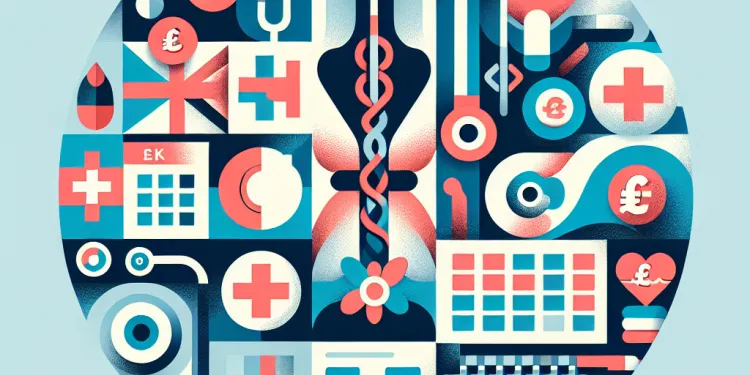
Can the test be performed during my menstrual period?
Relevance: 32%
-

What happens when the introductory APR period ends?
Relevance: 31%
-

What is the minimum service period to qualify for firefighter pension benefits?
Relevance: 30%
-

What should I avoid doing during the recovery period?
Relevance: 28%
-

How long is the incubation period for chickenpox?
Relevance: 27%
-

What if I have moved house since the claim period?
Relevance: 27%
-

Does bereavement leave cover funerals for cultures or religions with extended mourning periods?
Relevance: 26%
-

When should I take a pregnancy test?
Relevance: 23%
-

What is the difference between perimenopause and menopause?
Relevance: 20%
-

What exactly is an arrhythmia?
Relevance: 20%
-

Will the test affect my menstrual cycle?
Relevance: 20%
-

Does the menopause just happen suddenly?
Relevance: 19%
-

Can stress affect a pregnancy test result?
Relevance: 17%
-
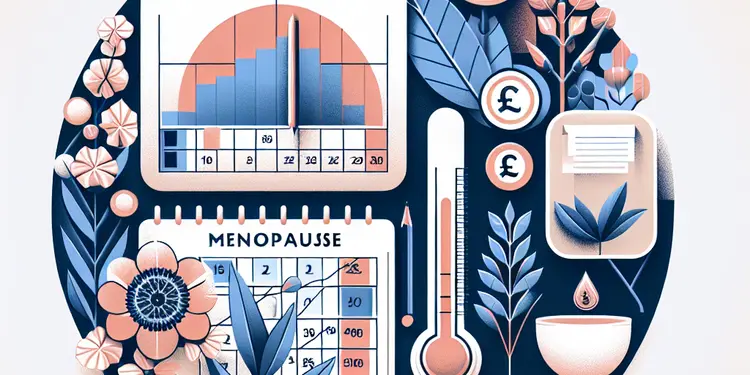
What is menopause?
Relevance: 16%
-

Does Menopause Only Happen in Your 50's? | NHS 24
Relevance: 15%
-

What if my pregnancy test is negative and I still think I'm pregnant?
Relevance: 15%
-

Is my abnormal heart rhythm dangerous?
Relevance: 15%
-
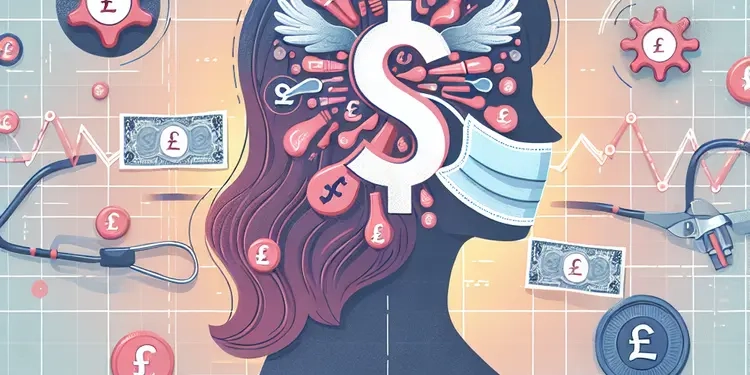
What is menopause masking?
Relevance: 14%
-
What are common symptoms of eating disorders?
Relevance: 14%
-

What is alcohol poisoning?
Relevance: 13%
-
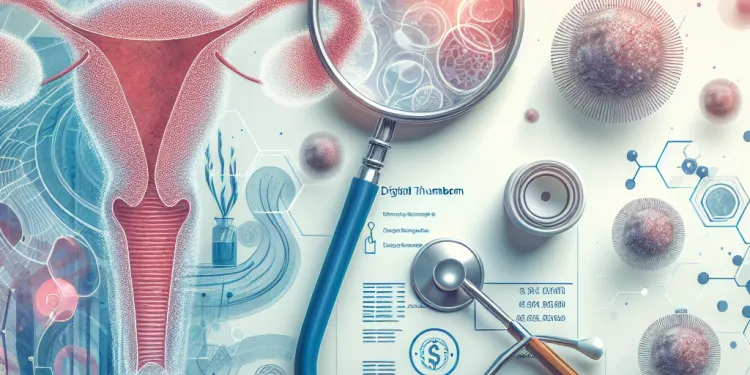
Why is a womb lining test performed?
Relevance: 13%
-

BSL - Causes of insomnia
Relevance: 13%
-

Can binge drinking affect physical health?
Relevance: 13%
-

How long does menopause typically last?
Relevance: 12%
-

Do mosquito screens work for all types of windows?
Relevance: 12%
-

If you want NHS braces, watch this!
Relevance: 12%
-
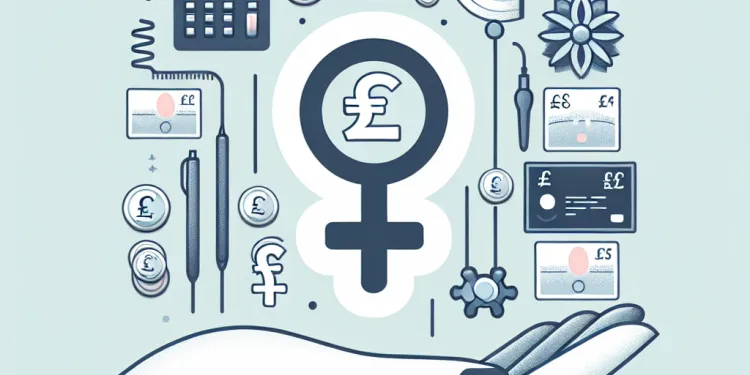
What are the reasons for female infertility?
Relevance: 12%
-

Can a defibrillator restart a stopped heart?
Relevance: 12%
Irregular Periods - Understanding and Managing
What Are Irregular Periods?
Irregular periods, medically termed as oligomenorrhea, are menstrual cycles that do not follow the usual monthly pattern. For many women, a typical menstrual cycle lasts between 21 to 35 days. When periods are inconsistent, either shorter, longer, or missed altogether, they are considered irregular. This can be concerning for women who rely on their menstrual cycle to gauge their reproductive health.Causes of Irregular Periods
Irregular periods can occur due to various factors: 1. **Hormonal Imbalance**: The most common cause is hormonal fluctuations. This could be due to conditions like Polycystic Ovary Syndrome (PCOS) or thyroid disorders. 2. **Stress and Lifestyle**: High levels of stress, significant weight gain or loss, and excessive exercise can also affect menstrual cycles. 3. **Birth Control**: Oral contraceptives and other forms of birth control can alter menstrual patterns. 4. **Medical Conditions**: Chronic illnesses, diabetes, and celiac disease can also contribute to irregular cycles.Symptoms to Watch Out For
Apart from the primary symptom of having irregular periods, you might also notice: - Unusually light or heavy flow - Duration of periods varying significantly - Spotting between periods - Missed periods for several months If these symptoms persist, it's essential to seek medical advice.Treatment Options
Treatment for irregular periods depends on the underlying cause: 1. **Lifestyle Adjustments**: Reducing stress through activities like yoga or meditation, maintaining a healthy weight, and avoiding extreme exercise can help regularise periods. 2. **Medication**: Hormonal treatments, such as birth control pills or medication to treat thyroid disorders, can be prescribed by your doctor. 3. **Diet and Supplements**: Eating a balanced diet and taking necessary supplements can also play a role in regulating your menstrual cycle.When to See a Doctor
It's essential to consult with a healthcare professional if: - Your periods suddenly become irregular after being regular. - You experience severe pain, heavy bleeding, or other concerning symptoms. - There are signs of a hormonal disorder or other medical conditions.Conclusion
Irregular periods are common and can be influenced by various factors, from lifestyle choices to underlying medical conditions. Understanding the causes and seeking appropriate treatment can help manage and regularise menstrual cycles. If you experience persistent irregularities, consulting with a healthcare provider in the UK is crucial for proper diagnosis and treatment.Irregular Periods - Understanding and Managing
What Are Irregular Periods?
Irregular periods are when your monthly bleeding (period) doesn’t come at the same time each month. Normally, periods come between 21 to 35 days. If your period is early, late, or missed, it's irregular. Irregular periods can worry some women who want to know if they are healthy.Causes of Irregular Periods
Several things can make periods irregular: 1. **Hormonal Changes**: This is the main reason. Conditions like Polycystic Ovary Syndrome (PCOS) or thyroid problems can cause changes. 2. **Stress and Lifestyle**: Being very stressed, gaining or losing a lot of weight, and too much exercise can change your periods. 3. **Birth Control**: Pills and other birth control can change how often you get your period. 4. **Health Problems**: Long-term health issues like diabetes or celiac disease can affect periods too.Symptoms to Watch Out For
Along with irregular periods, you might see: - Very light or very heavy bleeding - Periods that last for different times - Bleeding between periods - No periods for a few months If this happens a lot, it's important to talk to a doctor.Treatment Options
How you treat irregular periods depends on why they're irregular: 1. **Lifestyle Changes**: Doing things like yoga or meditation to feel less stressed, keeping a healthy weight, and not over-exercising can help. 2. **Medication**: Doctors can give medicine like birth control pills or medicine for thyroid problems. 3. **Food and Vitamins**: Eating healthy foods and taking vitamins can also help with your periods.When to See a Doctor
You should go to the doctor if: - Your periods suddenly become irregular when they used to be normal. - You have strong pain, very heavy bleeding, or other worrying signs. - You think you might have a hormone or health problem.Conclusion
Irregular periods can happen to many people because of different reasons, like how you live or health issues. Knowing why your periods are irregular and getting help can make them regular again. If your periods stay irregular, it's important to talk to a doctor to find out why and get the right help. You can use tools or apps to track your period days; it might be useful if you need to tell the doctor.Frequently Asked Questions
What are irregular periods?
Irregular periods are menstrual cycles that vary in length, may be missed altogether, or are unusually light or heavy.
What causes irregular periods?
Irregular periods can be caused by various factors including stress, hormonal imbalances, significant weight loss or gain, and medical conditions such as polycystic ovary syndrome (PCOS) or thyroid disorders.
Can stress affect my menstrual cycle?
Yes, stress can disrupt the hormonal balance in your body, which can lead to irregular periods.
How does polycystic ovary syndrome (PCOS) affect periods?
PCOS is a condition that affects hormone levels, leading to irregular or missed periods, and potentially causing other symptoms like weight gain and excessive hair growth.
When should I see a doctor about irregular periods?
You should see a doctor if your periods are consistently irregular, very heavy, very light, or if you experience other symptoms like severe pain, excessive hair growth, or significant weight changes.
Can birth control pills help regulate periods?
Yes, birth control pills can help regulate your menstrual cycle by controlling hormone levels in your body.
How can weight affect menstrual cycles?
Both significant weight loss and gain can affect hormone levels in the body, which can lead to irregular periods.
Is it normal to miss a period?
Occasionally missing a period can be normal, but if you frequently miss periods, it is best to consult a healthcare professional.
Can exercise influence my menstrual cycle?
Intense exercise can affect hormone levels and may lead to irregular periods. Balance is crucial to maintain a regular cycle.
How can thyroid disorders affect my menstrual cycle?
Both hypothyroidism (underactive thyroid) and hyperthyroidism (overactive thyroid) can lead to irregular menstrual cycles as they affect hormone levels.
What lifestyle changes can help improve irregular periods?
Maintaining a healthy weight, reducing stress, eating a balanced diet, and exercising regularly can help regulate menstrual cycles.
Can medication cause irregular periods?
Certain medications, including antipsychotics, antidepressants, and chemotherapy drugs, can cause irregular periods.
How does age impact menstrual regularity?
Teenagers and women approaching menopause often experience irregular periods due to fluctuating hormone levels.
Can irregular periods affect fertility?
Yes, irregular periods can make it more difficult to predict ovulation, which may affect fertility.
Are there any natural remedies for irregular periods?
Natural remedies such as maintaining a healthy diet, regular exercise, reducing stress, and herbal supplements may help, but it's important to consult with a healthcare provider before trying any new treatment.
What are irregular periods?
Periods are the times when blood comes from a girl's or woman's body. This happens to help their body get ready to have babies one day.
Irregular periods mean the bleeding does not happen at the same time each month. Sometimes it comes much earlier, sometimes much later.
This is normal for many people, especially when periods first start.
If you are worried about your periods, you can talk to an adult you trust or see a doctor.
Some tools that can help are using a calendar to mark when periods start and end or using a period-tracking app. These can help you notice any patterns or changes.
Irregular periods are when your period does not come at the same time each month. Sometimes you might skip a period, or it might be very light or very heavy.
If you find reading difficult, you can use a ruler or a piece of paper to keep your place. Also, you can ask a helper to read it with you.
What makes periods come at different times?
Here are some reasons why periods might not be on time:
- Body changes, like growing up or being sick.
- Feelings, like being sad or worried.
- Exercise, like playing lots of sports.
- Eating habits, like eating too much or too little.
Some tools that might help:
- Using a calendar or app to keep track of periods.
- Talking to a trusted adult or doctor.
Irregular periods mean your periods do not come at the same time every month. This can happen for different reasons:
- Feeling very stressed or worried.
- Hormones in your body are not balanced.
- Losing or gaining a lot of weight quickly.
- Health problems like PCOS or thyroid issues.
To help with understanding, you can use tools like picture charts or colored calendars to track your periods. Also, talking to a doctor can help find out what is causing the irregular periods.
Can stress change my period?
Stress means feeling worried or pressured. It can change the way our bodies work.
If you feel stressed, your period might come earlier or later. Sometimes, it might even stop for a while.
Try relaxing by doing things you like, such as drawing, listening to music, or taking deep breaths. These can help your body feel better.
If you're worried about your period, it's a good idea to talk to a parent or doctor who can help you understand more.
Yes, stress can upset the natural balance of chemicals in your body. This can make your periods not come on time.
How does PCOS change periods?
PCOS can make periods different or hard to know when they will come. Here is how:
- Irregular Periods: Periods might not come every month. They can be late or skip months.
- Heavy Periods: When periods do come, they can be very heavy and last many days.
- Painful Periods: Periods could hurt more than usual, causing cramps.
Tools that can help:
- Period Tracker App: Use an app to note down when periods come. This can help know when they might come back.
- Calendar: Mark period days on a calendar to see patterns.
- Talk to a Doctor: A doctor can give advice and help if periods are very hard to manage.
PCOS is a health problem that changes hormone levels. It can make your periods come late or not at all. It might also cause weight gain and extra hair to grow.
To help understand better, you can:
- Use pictures or drawings to explain ideas.
- Read with someone who can help you.
- Take your time and ask questions if you're unsure.
When should I see a doctor about irregular periods?
Irregular periods can be when your period doesn't come at the same time every month.
You should see a doctor if: - Your periods are very heavy or last a long time. - You have a lot of pain during your period. - Your periods stopped for more than 3 months without a reason like pregnancy. - You are younger than 9 or older than 50 and still get periods.
If you need help keeping track of your periods, you can: - Use a calendar to mark the days you have your period. - Use a phone app to remind you when your period should start.
Seeing a doctor can help you find out why your periods are irregular and what can be done.
If your periods are always different, very heavy, very light, or if you feel other things like strong pain, lots of hair growing, or big weight changes, you should see a doctor.
Do birth control pills help make periods regular?
Birth control pills can help make periods regular. This means they can help your periods come at the same time each month.
If periods are not regular, birth control pills might help. But always talk to a doctor first.
Pictures and simple charts can be useful. A calendar can also help keep track of periods.
Yes, birth control pills can help make your periods come regularly. They do this by balancing hormones in your body.
How does weight change periods?
Weight can change how your period works. If you lose a lot of weight or gain a lot of weight, your period might be different.
Eating healthy and staying active can help keep your period regular. If you are worried about your weight or your period, it is a good idea to talk to a doctor.
Using a calendar to track your period can help you see any changes. Apps on your phone can also help you keep track of your periods.
When you lose or gain a lot of weight, it can change the hormones in your body. This can make your periods come at different times.
You can try talking to a doctor if you notice these changes. They can help you understand what's happening. You can also use a calendar or app to track your periods.
Is it okay to not have a period?
Sometimes, people might not have their period. This can happen for many reasons.
If your period is late or doesn't come, it might be good to ask a doctor. They can help you understand why.
You can also try using a calendar or app to track your period each month. This can help you see if things change.
Sometimes, not having your period is okay. But if you miss your period a lot, you should talk to a doctor.
Can exercise change my period?
Lots of hard exercise can change your body’s hormones and make your periods come at different times. Doing the right amount of exercise is important to keep your periods regular.
How does the thyroid affect periods?
Your thyroid is a small gland in your neck. It makes hormones that help your body work properly.
If your thyroid is not working right, it can change your periods. Here is how:
- If your thyroid makes too many hormones or too few, your periods can be heavier or lighter.
- Your periods might come more often or not come at all.
If you notice changes in your periods, it is a good idea to visit a doctor. They can help check if your thyroid is the cause.
Using a calendar to track your periods can help you notice any changes. This can be a useful tool to share with your doctor.
Your thyroid is a small gland in your neck. It helps control the hormones in your body. If your thyroid is not working right, it can change your period.
If your thyroid is too slow, this is called hypothyroidism. If it is too fast, this is called hyperthyroidism. Both can make your periods come at different times.
Using a calendar or an app to track your period can help you know if your cycles are changing.
How can changes in daily life help with irregular periods?
Here are some easy ways to help:
- Eat healthy foods: Try to eat fruits, veggies, and whole grains. They keep your body strong.
- Exercise regularly: Doing things like walking or dancing can help you feel better.
- Get enough sleep: Try to sleep for about 8 hours a night. Good sleep helps your body work well.
- Relax and reduce stress: Doing things like taking deep breaths or drawing can help you feel calm.
If you find this hard, ask someone you trust or a doctor for help. They can give you more tips and support.
There are some things you can do to help your periods be on time:
- Keep a healthy body weight.
- Do things to feel less stressed.
- Eat a mix of different good foods.
- Exercise or be active often.
These can all be helpful! If you want, you can also talk to a doctor or a nurse for more help.
Can medicine change your periods?
Some medicines can make your periods come at different times. These medicines include ones for mental health, like medicines to help with big feelings (antipsychotics and antidepressants), and medicines for cancer (chemotherapy).
How does age affect periods?
As girls and women get older, their periods can change. Here are some things that might happen:
- Young age: When girls start their periods, they might not be regular. This is normal.
- Teenage years: Periods can start to become more regular as they grow.
- 20s and 30s: Many women have regular periods during these years.
- 40s and 50s: As women get older, before menopause, periods might become less regular again.
A tool called a calendar can help you track periods. Writing down the days you get your period can help you see patterns over time. Talking to a doctor is also a good idea if you have questions about your period.
Teenagers and women who are getting close to menopause often have periods that are not regular. This happens because their hormones are changing.
Can irregular periods make it harder to have a baby?
Periods are another way to say when you bleed every month. If your periods do not come at the same time each month, they are called irregular.
Irregular periods can make it harder to tell when you can have a baby. This is because it is more difficult to know when you are ovulating. Ovulating is when your body is ready to make a baby.
If you want to have a baby but have irregular periods, talk to a doctor. They can help you understand what to do.
Need help? You can:
- Use a calendar to track your periods.
- Use apps to understand your cycle better.
Yes, if you have irregular periods, it can be harder to know when you are ovulating. This can make it more difficult to get pregnant.
Can nature help with irregular periods?
Do you have periods that don’t come regularly? Sometimes nature can help.
Here are some simple ideas:
- Herbal teas: Try drinking chamomile or ginger tea.
- Healthy foods: Eat fruits and vegetables every day.
- Exercise: Go for a walk or do some gentle yoga.
It's good to ask a grown-up or doctor for advice too. They can guide you.
There are some natural ways that might help you feel better. These include eating healthy food, exercising regularly, doing things that help you relax, and taking herbal supplements. But, before you try any new treatment, it's important to talk to a healthcare provider. They can give you the best advice.
Useful Links
This website offers general information and is not a substitute for professional advice.
Always seek guidance from qualified professionals.
If you have any medical concerns or need urgent help, contact a healthcare professional or emergency services immediately.
Some of this content was generated with AI assistance. We’ve done our best to keep it accurate, helpful, and human-friendly.
- Ergsy carfully checks the information in the videos we provide here.
- Videos shown by Youtube after a video has completed, have NOT been reviewed by ERGSY.
- To view, click the arrow in centre of video.
- Most of the videos you find here will have subtitles and/or closed captions available.
- You may need to turn these on, and choose your preferred language.
- Go to the video you'd like to watch.
- If closed captions (CC) are available, settings will be visible on the bottom right of the video player.
- To turn on Captions, click settings .
- To turn off Captions, click settings again.
More Items From Ergsy search
-

Irregular periods - BSL
Relevance: 100%
-

What you need to know about irregular periods
Relevance: 84%
-

How to deal with period pain | NHS
Relevance: 37%
-

What is the notice period for redundancy?
Relevance: 36%
-

Period pain (dysmenorrhoea) - BSL
Relevance: 36%
-

Has the notice period for eviction changed?
Relevance: 34%
-

How to deal with period pain | NHS
Relevance: 34%
-

How to deal with period pain | NHS
Relevance: 34%
-

How to deal with period pain | NHS
Relevance: 34%
-

Heavy periods (heavy menstrual bleeding)
Relevance: 33%
-

How long is the incubation period for the Marburg virus?
Relevance: 33%
-

What is the grace period for the penalty point system?
Relevance: 33%
-

Can the test be performed during my menstrual period?
Relevance: 32%
-

What happens when the introductory APR period ends?
Relevance: 31%
-

What is the minimum service period to qualify for firefighter pension benefits?
Relevance: 30%
-

What should I avoid doing during the recovery period?
Relevance: 28%
-

How long is the incubation period for chickenpox?
Relevance: 27%
-

What if I have moved house since the claim period?
Relevance: 27%
-

Does bereavement leave cover funerals for cultures or religions with extended mourning periods?
Relevance: 26%
-

When should I take a pregnancy test?
Relevance: 23%
-

What is the difference between perimenopause and menopause?
Relevance: 20%
-

What exactly is an arrhythmia?
Relevance: 20%
-

Will the test affect my menstrual cycle?
Relevance: 20%
-

Does the menopause just happen suddenly?
Relevance: 19%
-

Can stress affect a pregnancy test result?
Relevance: 17%
-

What is menopause?
Relevance: 16%
-

Does Menopause Only Happen in Your 50's? | NHS 24
Relevance: 15%
-

What if my pregnancy test is negative and I still think I'm pregnant?
Relevance: 15%
-

Is my abnormal heart rhythm dangerous?
Relevance: 15%
-

What is menopause masking?
Relevance: 14%
-
What are common symptoms of eating disorders?
Relevance: 14%
-

What is alcohol poisoning?
Relevance: 13%
-

Why is a womb lining test performed?
Relevance: 13%
-

BSL - Causes of insomnia
Relevance: 13%
-

Can binge drinking affect physical health?
Relevance: 13%
-

How long does menopause typically last?
Relevance: 12%
-

Do mosquito screens work for all types of windows?
Relevance: 12%
-

If you want NHS braces, watch this!
Relevance: 12%
-

What are the reasons for female infertility?
Relevance: 12%
-

Can a defibrillator restart a stopped heart?
Relevance: 12%


